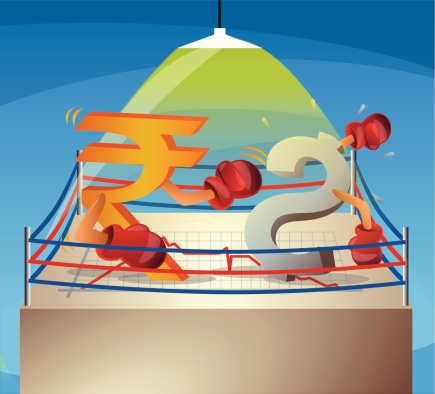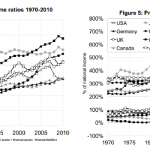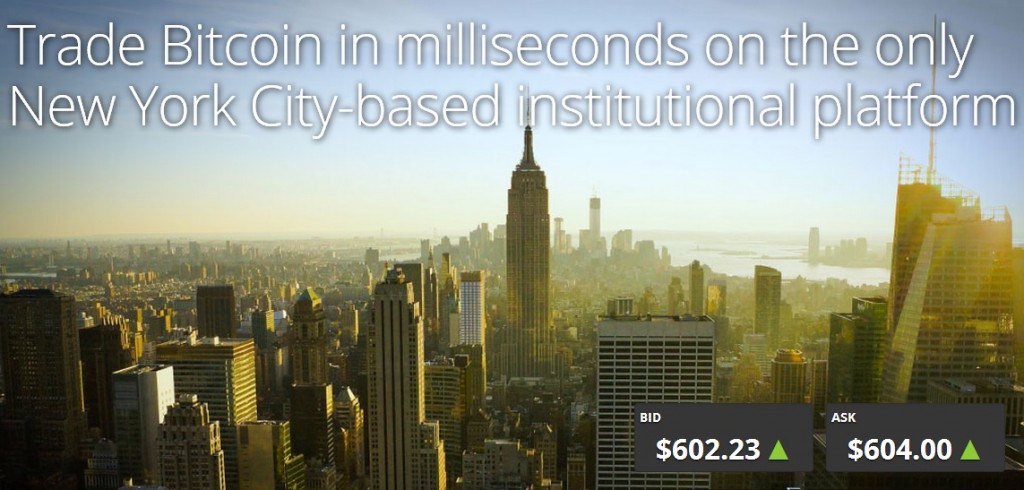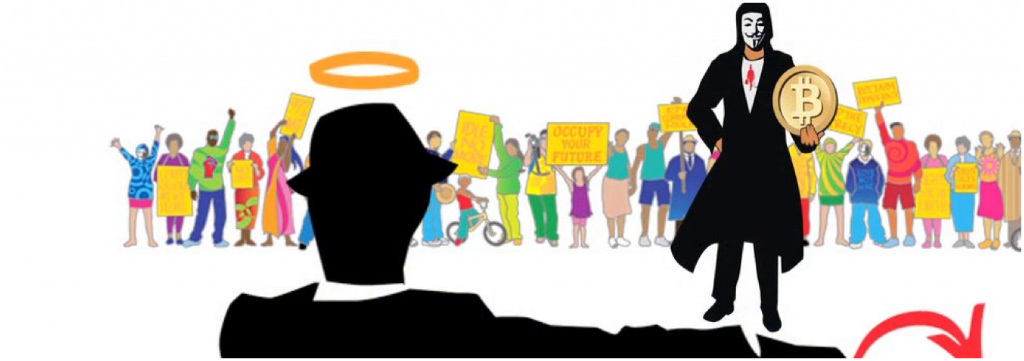Bitcoin has re-introduced the idea of money as a competitive good. It has done so in a meaningful way. This idea has been conspicuously missing from the economic debate for too long. I, for one, am pleased to welcome it back.
We’ve always had competitive ‘private’ monies, centrally managed and lacking global reach. A current example would be the Brixton pound.
These monies could never effectively compete with money by fiat decree. If these monies existed on the Internet, they were promptly shut down. If they existed outside the Internet, they could never scale to threatening levels. The fiat monopoly was easily maintained.
Bitcoin cannot be effectively shut down. Bitcoin also facilitates value transfer on a global scale. It is these two factors combined that make it competitive.
As a result we have a working experiment in money as a virtual good, issued outside the apparatus of state, competing with other monies. This can be quite difficult to fathom. Over several generations we have grown accustomed to money by central decree. Surely that’s how it must always be.
Leading economists would have us believe that it is imperative and necessary that money be centrally monopolized, at the same time espousing the benefits of free market competition everywhere else. What a crock.
Capitalism requires free markets. If money is both completely monopolized and half of every transaction, then we are missing out on capitalism.
In reality money is no different to any other good. It should be subject to the same market forces.
The lack of a free market in money is at the core of all our economic and societal problems. Yet we accept it without question. The greater casualty is capitalism itself, which is routinely blamed for the constant boom-bust cycles.
The fundamental laws of economics operate like the laws of physics. They are immutable. More government regulation cannot rid us of this endless to-and-fro. Only competitive money, arising out of the marketplace, can steady this.
A basic understanding of business cycle theory is needed, before we can recognize the real importance of Bitcoin as competitive money, from an economic perspective.
Imagine if the government decided, for reasons of public policy, it needed to affect the price of beer. To do so it created the Federal Beer Bureau. Periodically the Federal Beer Bureau would meet, in secret, and decide what the price of beer would be over the short term.
It would force all brewers in the country to price accordingly. We would recognize this as a little strange at best. After all, supply and demand should determine what a beer costs.
Yet we do not question this kind of Orwellian activity when it applies to our money.
Money is a good and it has a price too. Money is the most important good in an economy: as one half of every transaction. The price of money is the interest rate, moving in relation to the supply and demand for money in the economy.
With the bank at the centre of the process we can illustrate. A bank is a business. In order to profit they take in savings and loan out those savings at a higher interest rate.
If the bank only has a little bit of money in its vaults to lend, then it is low on its inventory of goods: money. It must encourage customers to save more, in order to fill up on supplies. It does this by increasing the interest rate. Consumers are now incentivized to save more, through deposits with the bank.
Now that the bank has filled up on supplies of this good, they need to make a profit. They do this by lending out the good (money) to businesses. To encourage this activity, they lower the price of money to an optimal point.
It is this action that determines the correct price for money. The market is doing it all by itself, without any help from the government.
The bank will find the optimal price for money, according to these competitive forces, and that will be the price of money. If it does not do this optimally, it will go bankrupt, just like any enterprise that cannot operate efficiently in a competitive environment.
When the interest rate is high it means consumers are not saving enough money. This is important for business. If a business wants to borrow money to invest for products that will be available in the future, it must ensure consumers are saving money for that future consumption.
If consumers would rather spend money on the present instead, it will be reflected in the level of savings and, by extension, the interest rate. There will be a low savings rate, scarce amount of savings available and high interest rate.
In this way the interest rate also operates as an important signal to producers and the economy.
So when the government and its central bank ‘sets’ (manipulates) the price of money, they ensure that the economy receives fake signals about the level of savings and desire for future consumption.
These false signals cause borrowing and investments that should not occur. An economic boom results, that must necessarily correct itself with a bust.
For a time business will incorrectly believe savings exist and invest in big future projects, hiring more people and lowering unemployment.
Eventually they will realize that the projects are not profitable and run out of money to borrow. Then the longer-term picture of the inevitable bust is much more bleak.
With Bitcoin, we have a quality, free market money, outside the purview of state manipulation. It exists in the marketplace and will provide an alternative to the madness inherent in this manipulated system.
But if Bitcoin only serves to re-introduce the notion of money as a competitive good into the arena of economic debate, and provide a working example, it would have accomplished a great deal.
The post Money as a Competitive Good appeared first on Bitcoin Magazine.














